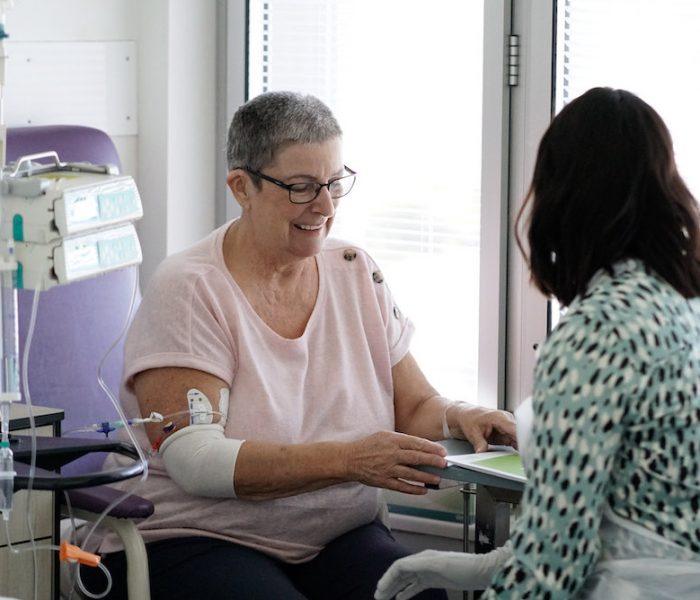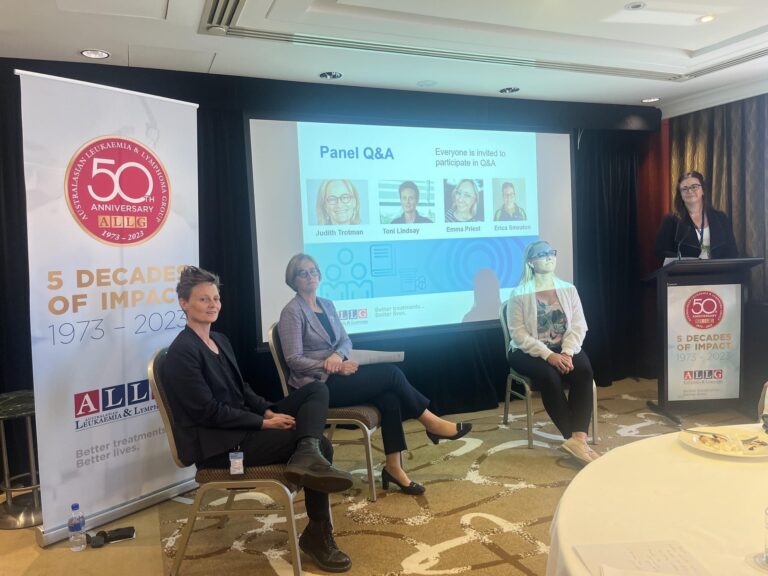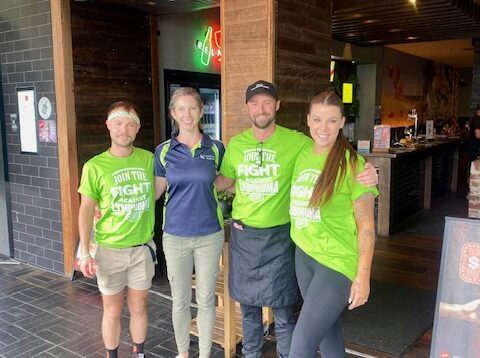
Lymphoma Australia
Business / Practice Details
Business / Provider Type
Community Health Service, Support
Services Offered
Events, Community Care
Profile
Business / Provider Profile
About Us
We will never let anyone face Lymphoma/CLL alone
Each day 20 Australian’s receive a Lymphoma diagnosis and if you or a loved one has been touched by Lymphoma you can call the National Lymphoma Nurse Support Line, join our closed Facebook group – Lymphoma Down Under, sign up for our e news or request our free resources to ensure you have the information you need.
Our Lymphoma Australia Nurses are professional, qualified nurses who care for patients across Australia. These Lymphoma specialist nurses deliver an essential service to patients and cancer nurses. Lymphoma Australia nurses can help you navigate the lymphoma journey and connect you with others and the appropriate support networks
With more than 80 different subtypes of Lymphoma, both diagnosis and treatment options can be confusing. Lymphoma Australia, in conjunction with our medical advisory board, helps patients and their families to understand their diagnosis and treatment options. We provide information packs to patients and hospitals and host education days and webinars to help people better understand Lymphoma.
We will never let anyone face Lymphoma/CLL alone
Each day 20 Australian’s receive a Lymphoma diagnosis and if you or a loved one has been touched by Lymphoma you can call the National Lymphoma Nurse Support Line, join our closed Facebook group – Lymphoma Down Under, sign up for our e news or request our free resources to ensure you have the information you need.
Our Lymphoma Australia Nurses are professional, qualified nurses who care for patients across Australia. These Lymphoma specialist nurses deliver an essential service to patients and cancer nurses. Lymphoma Australia nurses can help you navigate the lymphoma journey and connect you with others and the appropriate support networks
With more than 80 different subtypes of Lymphoma, both diagnosis and treatment options can be confusing. Lymphoma Australia, in conjunction with our medical advisory board, helps patients and their families to understand their diagnosis and treatment options. We provide information packs to patients and hospitals and host education days and webinars to help people better understand Lymphoma.
Why us
What do I need to know about my lymphoma?
There are over 80 different subtypes of lymphoma. Some subtypes are more common, and others are very rare. More than 75 of these subtypes are a subtype of Non-Hodgkin Lymphoma, while 5 are subtypes of Hodgkin Lymphoma.
It is important to know what subtype you have, because this can affect what type of treatment will likely work best for you, and how the lymphoma will progress with and without treatment. It will help you plan ahead, know what to expect and help you ask your doctor the right questions.
Lymphomas are further grouped into indolent or aggressive lymphomas.
Indolent Lymphoma
Indolent lymphomas are slow-growing lymphomas that often “sleep” and do not grow. This means they exist in your body, but are not doing any harm. Many indolent lymphomas do not need any treatment – particularly if they are sleeping. Even some advanced stage, indolent lymphomas such as stage 3 and stage 4 may not need treatment, if they are not causing symptoms and are not actively growing.
Most indolent lymphomas cannot be cured, so you will have the lymphoma for the rest of your life. But, many people can live a normal life and life span with an indolent lymphoma.
You may not have any noticeable symptoms when you have an indolent lymphoma, and can live with it for many years without any problems. For some people, it may not even be diagnosed until you to the doctor and get checked for something else.
One in five people with an indolent lymphoma will never need treatment for their lymphoma. However, indolent lymphomas can “wake up” and start growing. If this happens, you will probably need to start treatment. It is important that you let your doctor know if you start getting symptoms such as new or growing lumps (swollen lymph nodes) or B-symptoms including:
Drenching night sweats
Unexpected weight loss
Temperature with or without chills and shaking.
In rare cases, an indolent lymphoma can “transform” into an aggressive subtype of lymphoma. If this happens you will be given the same treatment for the aggressive lymphoma.
Below is a list of the more common B-cell and T-cell indolent lymphomas. If you know your subtype, and it is listed here, you can click on it for more information.
There are over 80 different subtypes of lymphoma. Some subtypes are more common, and others are very rare. More than 75 of these subtypes are a subtype of Non-Hodgkin Lymphoma, while 5 are subtypes of Hodgkin Lymphoma.
It is important to know what subtype you have, because this can affect what type of treatment will likely work best for you, and how the lymphoma will progress with and without treatment. It will help you plan ahead, know what to expect and help you ask your doctor the right questions.
Lymphomas are further grouped into indolent or aggressive lymphomas.
Indolent Lymphoma
Indolent lymphomas are slow-growing lymphomas that often “sleep” and do not grow. This means they exist in your body, but are not doing any harm. Many indolent lymphomas do not need any treatment – particularly if they are sleeping. Even some advanced stage, indolent lymphomas such as stage 3 and stage 4 may not need treatment, if they are not causing symptoms and are not actively growing.
Most indolent lymphomas cannot be cured, so you will have the lymphoma for the rest of your life. But, many people can live a normal life and life span with an indolent lymphoma.
You may not have any noticeable symptoms when you have an indolent lymphoma, and can live with it for many years without any problems. For some people, it may not even be diagnosed until you to the doctor and get checked for something else.
One in five people with an indolent lymphoma will never need treatment for their lymphoma. However, indolent lymphomas can “wake up” and start growing. If this happens, you will probably need to start treatment. It is important that you let your doctor know if you start getting symptoms such as new or growing lumps (swollen lymph nodes) or B-symptoms including:
Drenching night sweats
Unexpected weight loss
Temperature with or without chills and shaking.
In rare cases, an indolent lymphoma can “transform” into an aggressive subtype of lymphoma. If this happens you will be given the same treatment for the aggressive lymphoma.
Below is a list of the more common B-cell and T-cell indolent lymphomas. If you know your subtype, and it is listed here, you can click on it for more information.
Business Address
22 Juliette Street Brisbane, QLD, Australia,
Brisbane City QLD 4000, Australia
Location Map View Map
Claim this profile to receive referrals from this page.
0 Follower(s)




